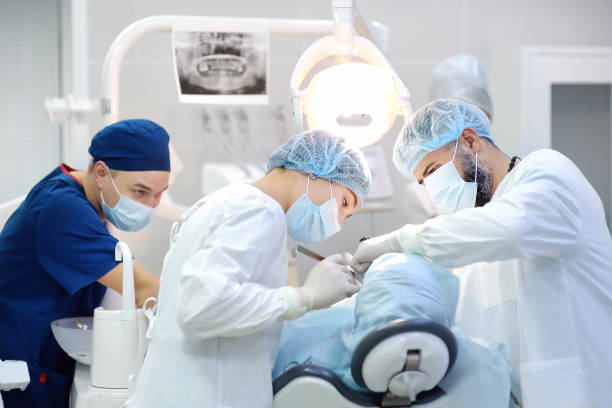Oral Surgery and Advanced Procedures in Chicago: Exploring Complex Dental Surgeries and Treatments in the City
Oral health is an essential component of overall well-being, and the city of Chicago has made significant efforts to address the oral health needs of its diverse population. In this article, we will delve into oral health statistics in Chicago, examining dental trends, common dental issues, and demographic factors that play a crucial role in shaping the oral health landscape of the city.
Dental Trends and Statistics
Dental Visits:
- According to the Chicago Department of Public Health, in a recent survey, about 61% of adults in Chicago reported having visited a dentist within the past year. While this is an improvement from previous years, it highlights that a substantial portion of the population may still be underserved in terms of regular dental care.
Dental Insurance:
- The availability of dental insurance in Chicago has a significant impact on oral health outcomes. Approximately 48% of adults in Chicago have dental insurance, while 52% do not. Lack of dental insurance can be a barrier to accessing necessary dental care.
Dental Emergency Visits:
- Dental emergencies, such as toothaches and dental trauma, are relatively common in Chicago. Emergency room visits for dental issues often indicate unmet dental needs. In some cases, individuals may turn to the ER because they lack access to regular dental care.
Common Dental Issues
Dental Caries (Cavities):
- Dental caries, or cavities, remain a prevalent issue in Chicago. Data from the Chicago Department of Public Health shows that dental caries affect a significant number of children in the city. Efforts are underway to improve early dental care and preventive measures, such as dental sealants and community water fluoridation, to reduce the prevalence of cavities.
Gum Disease:
- Periodontal disease, commonly referred to as gum disease, is a prevalent concern in Chicago. According to the Centers for Disease Control and Prevention (CDC), nearly half of all adults aged 30 years and older in the United States have some form of gum disease. Chicago's diverse population may face varying degrees of risk based on their genetics, lifestyle, and access to care.
Oral Cancer:
- Oral cancer is a significant concern in Chicago, especially among individuals who use tobacco and alcohol. Regular oral cancer screenings and awareness campaigns are essential to early detection and treatment.
Demographics and Oral Health
Socioeconomic Factors:
- Socioeconomic factors significantly impact oral health outcomes in Chicago. Individuals with lower incomes and limited access to dental care services are more likely to experience dental issues and have poorer oral health overall.
Age:
- Age is a notable factor in oral health, with children and seniors being particularly vulnerable to dental problems. Chicago's oral health programs often focus on providing preventive care and education to these age groups.
Cultural Diversity:
- Chicago's diverse population brings unique challenges and opportunities to oral health care. Cultural factors, including dietary preferences and oral health practices, can influence the prevalence of dental issues among different communities.
Conclusion
Oral health statistics in Chicago reflect the challenges and progress in ensuring access to quality dental care for all residents. While the city has made strides in improving dental visits and preventive measures, there are still disparities in access to care based on demographics and socioeconomic factors. Continued efforts to raise awareness, expand access to dental services, and address common dental issues are essential to ensuring that Chicagoans can enjoy good oral health and overall well-being.
LPS Dental, a trusted dental practice in Chicago, actively addresses these challenges through community outreach, affordable care, and advanced treatments. By promoting regular dental visits and emphasizing preventive care, LPS Dental contributes to improving oral health outcomes for residents across the city.
